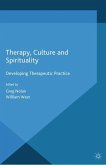Contemporary society is in constant change. Transitions and crises occur in every life, regardless of status, ethnicity, sex, race, education, or religion. Yet, the traditional societal forms for helping with these transitions and crises are changing as well. The typical nuclear family has given way to single-parent, blended, or dual-career structures. Religious, health, educational, social service, philanthropic, and other organizational support systems have also changed from their pre-1950 counterparts. As these sometimes evolutionary, sometimes revolutionary, changes have occurred, considerable scholarship and empirical research has attempted to identify and develop methods of helping people encounter these transitions and crises. These efforts have come from various fields: psychology, sociology, anthropology, linguistics, law, social work, nurs ing, medicine, education, labor relations, and others. Each has brought its own theories, research methods, and practical experiences to bear on the problems. One of the methods that these fields have universally been intrigued with is the use of empathy. Empathy, that crucial but elusive pheno menon (so the literature has reported), has been identified as important in human interactions. Labor mediators, legal arbitrators, psychiatric psychoanalysts, encounter group facilitators, classroom instructors, and kindred helpers have been told that "understanding how the other person or group is thinking and feeling" will help that person or group. The anxious parent and troubled spouse have been urged to "understand the other's point of view." Some writers have even argued that empathy is crucial to resolving international tensions and terrorist group violent actions.
Hinweis: Dieser Artikel kann nur an eine deutsche Lieferadresse ausgeliefert werden.
Hinweis: Dieser Artikel kann nur an eine deutsche Lieferadresse ausgeliefert werden.








